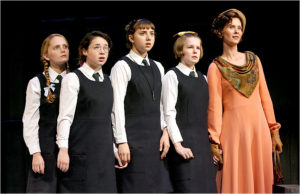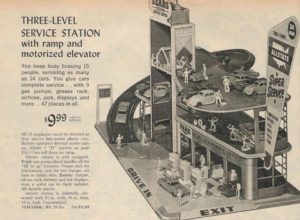 Here’s my list of recommended Broadway, off-Broadway, and out-of-town shows, updated weekly. In all cases, I gave these shows favorable reviews (if sometimes qualifiedly so) in The Wall Street Journal when they opened. For more information, click on the title.
Here’s my list of recommended Broadway, off-Broadway, and out-of-town shows, updated weekly. In all cases, I gave these shows favorable reviews (if sometimes qualifiedly so) in The Wall Street Journal when they opened. For more information, click on the title.
BROADWAY:
• The Band’s Visit (musical, PG-13, most shows sold out last week, reviewed here)
• Dear Evan Hansen (musical, PG-13, all shows sold out last week, reviewed here)
• Hamilton (musical, PG-13, Broadway transfer of off-Broadway production, all shows sold out last week, reviewed here)
• The Lifespan of a Fact (comedy, PG-13, closes Jan. 13, reviewed here)
• My Fair Lady (musical, G, most shows sold out last week, reviewed here)
OFF BROADWAY:
• Girl from the North Country (jukebox musical, PG-13, closes Dec. 23, reviewed here)
IN EAST HADDAM, CONN.:
• The Drowsy Chaperone (musical, G/PG-13, too conceptually complicated for small children, closes Nov. 25, reviewed here)
CLOSING SOON OFF BROADWAY:
• Uncle Vanya (drama, G, not suitable for children, newly extended through Nov. 18, reviewed here)
CLOSING SUNDAY OFF BROADWAY:
• Uncle Romeo Vanya Juliet (drama, PG-13, reviewed here)




 One of the nicest things about having spent the past fifteen years covering theater for The Wall Street Journal is that I’ve been able to watch a number of exceptionally gifted artists change and grow over extended spans of time. It happens, for example, that I witnessed Zoe Kazan’s professional stage debut in a 2006 off-Broadway revival of The Prime of Miss Jean Brodie. I was so struck by her performance, which I described in
One of the nicest things about having spent the past fifteen years covering theater for The Wall Street Journal is that I’ve been able to watch a number of exceptionally gifted artists change and grow over extended spans of time. It happens, for example, that I witnessed Zoe Kazan’s professional stage debut in a 2006 off-Broadway revival of The Prime of Miss Jean Brodie. I was so struck by her performance, which I described in  What inspired this train of thought, strangely enough, was the announcement the other day of the bankruptcy of Sears, Roebuck, a half-forgotten company that played no part in my post-9/11 life but once was central to my life as a small-town boy.
What inspired this train of thought, strangely enough, was the announcement the other day of the bankruptcy of Sears, Roebuck, a half-forgotten company that played no part in my post-9/11 life but once was central to my life as a small-town boy. I know exactly what Rod is talking about. Back then, of course, Sears mostly meant new clothes to me, and continued to do so well into my college days. But it was the annual Christmas catalogue that epitomized the role played by Sears in shaping the imaginations of kids like us. When I wrote about Christmas in Smalltown, U.S.A., in my
I know exactly what Rod is talking about. Back then, of course, Sears mostly meant new clothes to me, and continued to do so well into my college days. But it was the annual Christmas catalogue that epitomized the role played by Sears in shaping the imaginations of kids like us. When I wrote about Christmas in Smalltown, U.S.A., in my  Thanks to the internet, that matchless enabler of nostalgia, it’s possible to flip at leisure through painstakingly scanned electronic copies of the Wish Books of your youth and gaze lovingly upon the toys that you found (if you were lucky) under the family Christmas tree. No sooner did I stumble across
Thanks to the internet, that matchless enabler of nostalgia, it’s possible to flip at leisure through painstakingly scanned electronic copies of the Wish Books of your youth and gaze lovingly upon the toys that you found (if you were lucky) under the family Christmas tree. No sooner did I stumble across  But that was…well, a long time ago. Now the Sears Wish Books belong to the ages, as does my father himself, who was laid to rest in Smalltown’s Garden of Memories in 1998, too soon to know Mrs. T or see Satchmo at the Waldorf or turn on the television and watch the Twin Towers crumble into poisoned dust. Unlike Satchmo, Mrs. T, and my mother, who outlived him by fourteen years, he has become part of my distant past, though no day goes by without my thinking about him.
But that was…well, a long time ago. Now the Sears Wish Books belong to the ages, as does my father himself, who was laid to rest in Smalltown’s Garden of Memories in 1998, too soon to know Mrs. T or see Satchmo at the Waldorf or turn on the television and watch the Twin Towers crumble into poisoned dust. Unlike Satchmo, Mrs. T, and my mother, who outlived him by fourteen years, he has become part of my distant past, though no day goes by without my thinking about him. I cherish my memories of a long time ago, of my father and the Allstate Three-Level Service Station that he bought me and the myriad joys of
I cherish my memories of a long time ago, of my father and the Allstate Three-Level Service Station that he bought me and the myriad joys of